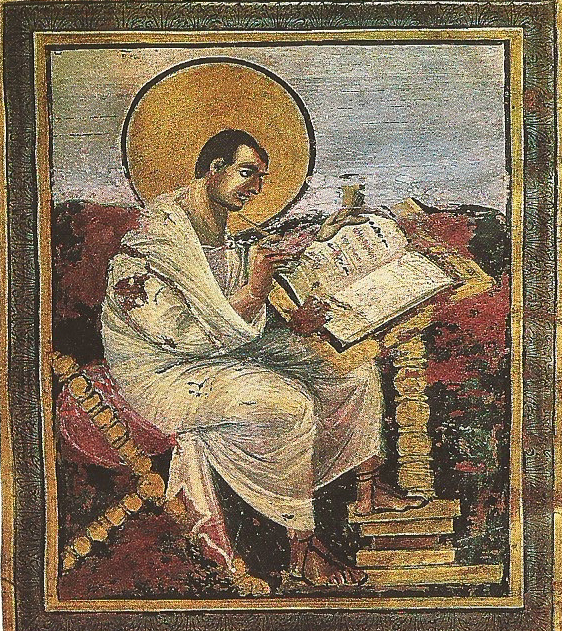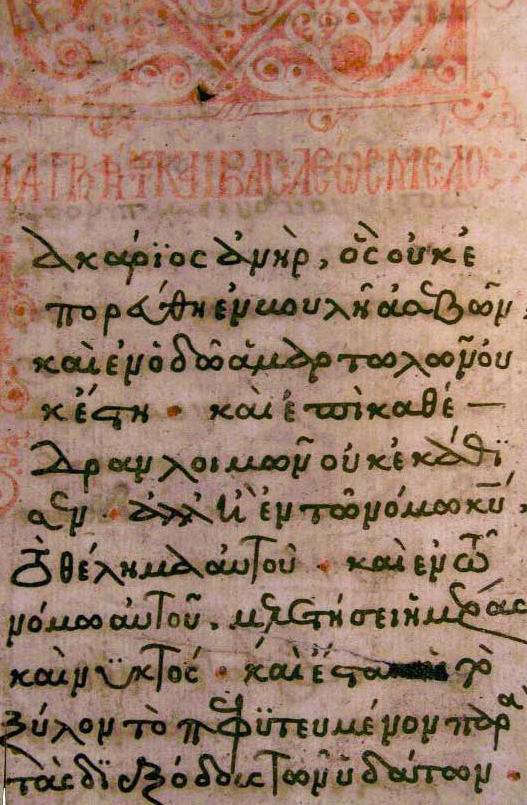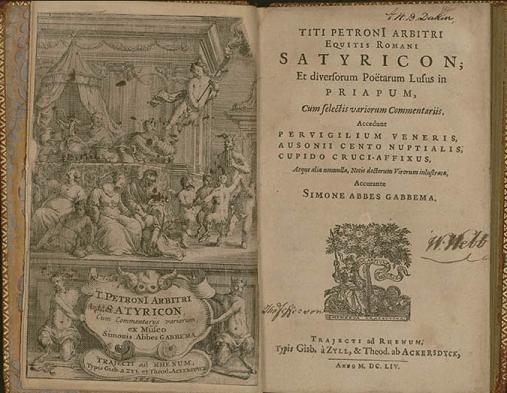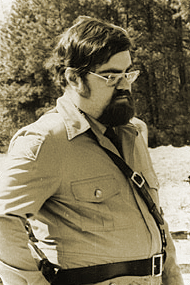
Below, excerpts of Randel Helms’ Gospel Fictions’ first chapter, “The Art of the Gospels: Theology as Fictional Narrative” (ellipsis omitted between unquoted passages):
I shall use the word “fiction” rather than “myth” to refer to the study, contained in this book, of the fictional aspects of the four canonical Gospels.
I write as literary critic, not as debunker. The Gospels are, it must be said with gratitude, works of art, the supreme fictions in our culture. Literary artists use their imaginations to produce poetry and fiction, works open to the methods of literary criticism. This literature was oral before it was written and began with the memories of those who knew Jesus personally.
Their memories and teachings were passed on as oral tradition for some forty years or so before achieving written form for the first time in a self-conscious literary work, so far as we know, in the Gospel of Mark, within a few years of 70 A.D.
Luke was obviously writing during a time when literature about Jesus was flowering. Paul was an ecstatic visionary who experienced, for what seems to be a period of nearly thirty years after the death of Jesus, visions of a heavenly being he called “Christ” and “the Lord,” and the fact is that neither Paul nor any other first-century Christian felt a need to distinguish between the heavenly being and the “historical Jesus.”
What is surprising is the great differences among the stories, even though they share, for the most part, similar sources. For example, according to Matthew and Mark, the dying words of Jesus were, “My God, my God, why hast thou forsaken me?” According to Luke, Jesus’ dying words were “Father, into your hands I commit my spirit.” But according to John, they were, “It is accomplished.” To put it another way, we cannot know what the dying words of Jesus were, or even whether he uttered any. It is not that we have too little information, but that we have too much. Each narrative implicitly argues that the others are fictional. In this case at least, it is inappropriate to ask of the Gospels what “actually” happened; they may pretend to be telling us, but the effort remains a pretense, a fiction.
We are, with these scenes, in the literary realm known as fiction, in which narratives exist less to describe the past than to affect the present. In De Quincy’s phrase, the Gospels are not so much literature of knowledge as literature of power. As in the case mentioned above, the content of the Gospels is frequently not “Jesus” but “what certain persons in the first century wanted us to think about Jesus.” In the language of the Fourth Gospel, “Those [narratives] here written have been recorded in order that you may hold the faith that Jesus is the Christ, the Son of God” (John 20:31).
The Gospels are Hellenistic religious narratives in the tradition of the Greek Septuagint version of the Old Testament, which constituted the “Scriptures” to those Greek-speaking Christians who wrote the four canonical Gospels and who appealed to it, explicitly or implicitly, in nearly every paragraph they wrote. A simple example is the case of the last words of Christ. Mark presents these words in self-consciously realistic fashion, shifting from his usual Greek into the Aramaic of Jesus, transliterated into Greek letters Eloi eloi lama sabachthanei (My God, my God, why hast thou forsaken me?—Mark 15:34). Mark gives us no hint that Jesus is “quoting” Psalm 22:1; we are clearly to believe that we are hearing the grieving outcry of a dying man.
But the author of Matthew, who used Mark as one of his major written sources, is self-consciously “literary” in both this and yet another way. Though using Mark as his major source for the passion story, Matthew is fully aware that Mark’s crucifixion narrative is based largely on the Twenty-second Psalm, fully aware, that is, that Mark’s Gospel is part of a literary tradition (this description would not be Matthew’s vocabulary, but his method is nonetheless literary).
Aware of the tradition, Matthew concerned himself with another kind of “realism” or verisimilitude. When the bystanders heard Jesus crying, according to Mark, to “Eloi,” they assumed that “he is calling Elijah [Eleian]” (Mark 15:35). But Matthew knew that no Aramaic speaker present at the Cross would mistake a cry to God (Eloi) for one to Elijah—the words are too dissimilar. So Matthew self-consciously evoked yet another literary tradition in the service both of verisimilitude and of greater faithfulness to the Scriptures: not the Aramaic of Psalm 22:1 but the Hebrew, which he too transliterated into Greek—Eli Eli (Matt. 27:46)—a cry which could more realistically be confused with “Eleian.”
Luke is even more self-conscious literary and fictive than Matthew in his crucifixion scene. Though, as I have said, he knew perfectly well what Mark had written as the dying words of Jesus, he created new ones more suitable to his understanding of what the death of Jesus meant—an act with at least two critical implications. First, that he has thus implicitly declared Mark’s account a fiction; second, that he self-consciously presents his own as a fiction. For like Matthew, Luke 23:46 deliberately placed his own work in the literary tradition by quoting Psalm 30 (31):5 in the Septuagint as the dying speech of Jesus: “Into your hands I will commit my spirit” (eis cheiras sou parathsomai to pneuma mou), changing the verb from future to present (paratihemai) to suit the circumstances and leaving the rest of the quotation exact.
 This is self-conscious creation of literary fiction, creation of part of a narrative scene for religious and moral rather than historical purposes. Luke knew perfectly well, I would venture to assert, that he was not describing what happened in the past; he was instead creating an ideal model of Christian death, authorized both by doctrine and by literary precedent.
This is self-conscious creation of literary fiction, creation of part of a narrative scene for religious and moral rather than historical purposes. Luke knew perfectly well, I would venture to assert, that he was not describing what happened in the past; he was instead creating an ideal model of Christian death, authorized both by doctrine and by literary precedent.
First-century Christians believed that the career of Jesus, even down to minor details, was predicted in their sacred writings. By a remarkably creative fiat of interpretation, the Jewish scriptures (especially in Greek translation) became a book that had never existed before, the Old Testament, a book no longer about Israel but about Israel’s hope, the Messiah, Jesus. Northrop Frye nicely sums up this self-reflexive aspect of the two Testaments as early Christians saw them:
How do we know that the Gospel story is true? Because it confirms the prophecies of the Old Testament. But how do we know that the Old Testament prophecies are true? Because they are confirmed by the Gospel story. Evidence, so called, is bounced back and forth between the testaments like a tennis ball; and no other evidence is given us. The two testaments form a double mirror, each reflecting the other but neither the world outside.
A voice, for example, in the (now) “Old” Testament became by interpretative fiat the voice of Jesus. When the psalmist wrote “My flesh shall rest in hope: because thou wilt not leave my soul in hell, neither wilt thou suffer thine holy one to see corruption” (Psalms 15 [16]:9-10 LXX), it was in fact not “really” the psalmist speaking, but Jesus, a thousand years before his birth. As Luke has Peter say, in interpreting these verses to the crowd at Pentecost:
Let me tell you plainly, my friends, that the patriarch David died and was buried, and his tomb is here to this very day. It is clear therefore that he spoke as a prophet… and when he said he was not abandoned to death, and his flesh never suffered corruption, he spoke with foreknowledge of the resurrection of the Messiah (Acts 2:29-31).
By fiat of interpretation, a psalm becomes a prophecy. David becomes Jesus.
We see a two-stage creative process here: first, the psalm is turned into a prophetic minidrama; then the interpretation of the psalm becomes another dramatic scene: Peter explaining it to the multitude. That the fictive creative act is Luke’s, and not Peter’s, is clear from the Greek of the scene: Luke has Peter quote, fairly loosely, as if from memory, the Septuagint Greek text of Psalms (though the historical Peter spoke Aramaic and needed, Christian tradition tells us, a Greek interpreter). The point of Luke’s interpretation depends on the Greek texts of the verse, not on the Hebrew. The Hebrew text of Psalm 16:10b has something like: “nor suffer thy faithful servant to see the pit,” which stands in simple parallelism to the first line of the distich, “Thou will not abandon me to Sheol” —that is, you will not allow me to die. The Greek text could, however, be taken to mean “You will not let me remain in the grave, nor will you let me rot.”
Peter’s speech is an effective work of dramatic fiction, the culmination of a complex two-stage creative process. Luke, as we shall see, creates the same kinds of dramatic fictions in his Gospel, the first half of the Christian history that includes his Acts of the Apostles.
Invention of that kind is the subject of this book.










